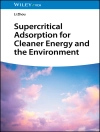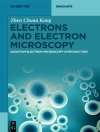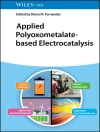The “Electrochemical Dictionary” provides up-to-date, broad and authoritative coverage of the specific terms most used in electrochemistry and its related fields, including relevant areas of physics and engineering. This modern compendium will be an indispensable source of information for scientists, engineers, and technical staff active in all fields of electrochemistry. The more than 2.770 entries have been written by a distinguished panel of eminent electrochemists.
Each entry supplies a clear and precise explanation of the term and provides references to the most useful reviews, books and original papers to enable readers to pursue a deeper understanding if so desired. The “Electrochemical Dictionary” will also be appreciatively consulted by scientists working in adjacent sciences and technologies, who need a quick understanding of the electrochemical terms they encounter. More than 300 figures and illustrations elaborate the textual definitions. The “Electrochemical Dictionary” also contains biographical entries of people who have substantially contributed to electrochemistry.
Table of Content
A.- B.- C.- D.- E.- F.- G.- H.- I.- J.- K.- L.- M.- N.- O.- P.- Q.- R.- S.- T.- U.- V.- W.- X.- Y.- Z.
About the author
Allen J. Bard is a well-known Professor at The University of Texas at Austin, Department of Chemistry & Biochemistry. His research interests involve the application of electrochemical methods to the study of chemical problems and include investigations in electroanalytical chemistry, electron spin resonance, electro-organic chemistry, high-resolution electrochemistry, electrogenerated chemiluminescence and photoelectrochemistry. (for further information please see: http://research.cm.utexas.edu/abard/CV.html)
György Inzelt is Director of the INSTITUTE OF CHEMISTRY, Budapest.
Fritz Scholz is Chair of Analytical and Environmental Chemistry Institute of Chemistry and Biochemistry at the University of Greifswald












